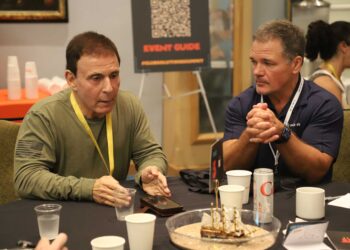The COVID-19 pandemic forced clubs everywhere to close their doors, and unfortunately, furlough most of their staff members. This left many full-time and part-time employees in a tough position for several months, navigating the loss of income, and deciding whether to find a new job or wait as long as they could to be brought back to their club once it reopened.
Recognizing the impact of the pandemic on its own staff, Fitness Connection launched the EPIC Relief Fund, which will help employees during crises such as a pandemic or any natural disasters.
“We enable grants for our Fitness Connection teammates who’ve been impacted by COVID-19,” said Deslyn Norris, the chief people officer at Fitness Connection. “These grants can help cover things like rent, mortgage, food, and other essential living costs and expenses.”
The fund will be administered as a 501(c)(3) through America’s Charities, and includes eligibility guidelines and a confidential application process for Fitness Connection employees.
“Our teammates are our most valued asset,” said Norris. “We wanted to do something that showed our team we appreciate them, their passion and their commitment to our brand, especially through these tough times.”
With many employees in need of financial assistance across 47 club locations in Texas, North Carolina and Nevada, it was paramount for Fitness Connection to quickly and effectively communicate information about the EPIC Relief Fund to its staff members.
Using personalized emails, flyers and having managers connect with furloughed employees, Fitness Connection was able to deliver basic information about the fund, including eligibility information.
“We translated all the information to Spanish as well, since Spanish is the second-most common language for our population,” said Norris. “At the end of the day, we want to make sure everybody could get the information.”
Through the EPIC Relief Fund, Fitness Connection’s goal is to give peace of mind to employees who need it. “Talk to your employees, find out what matters to them and gain insight,” said Norris. “Then you’ve got to act. It’s not just about listening and hearing what they need — you’ve got to do something about it.”
Stay ahead in the fitness industry with exclusive updates!
Bobby is the former assistant editor of Club Solutions Magazine.










